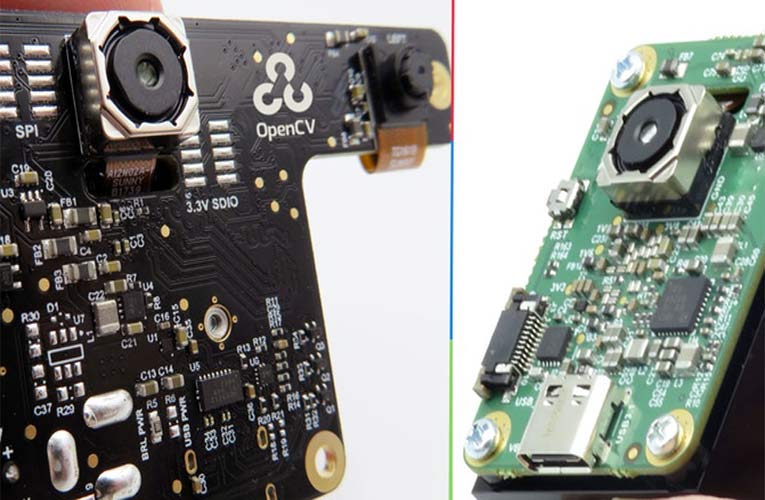
Recently launched, OpenCV AI Kit (OAK) is a family of open-hardware Myriad X-based hardware solution for computer vision by OpenCV. The open-source ecosystem composed of MIT-licensed hardware, software, and AI training allows the users to embed the super-power of spatial AI plus accelerated computer vision functions into your product.
The low power, Raspberry Pi-compatible OAK consists of the OAK API software and two different types of hardware: OAK-1 and OAK-D. These two variants are small AI and computer vision powerhouses. OAK-1 includes a 4K AI camera module that can do neural inference (image classification, object detection, segmentation, and a lot more) on the device. OAK-D is the Spatial AI solution that features a three-camera setup, both leveraging the stereo depth sensor. OAK-1 and OAK-D support Linux, Windows, and macOS as hosts.
Both the OAK devices are easy to use. They have cameras and onboard AI chip to perform several computer vision tasks such as identifying objects, counting people, finding distances to and between things in the frame, etc. The information thus sent out is in the polished, ready-to-use form.
As officially announced, the OpenCV AI Kit comprises of:
- A single-camera 4k @ 60fps hardware module which includes a Myriad X and is a tiny 45 mm x 30 mm.
- A module with a 4k @ 60fps camera and stereo depth cameras that provide spatial 3D tracking capability. It is about the size of a Raspberry Pi.
- A nsoftware library for advanced on-device real-time neural network processing for the OAK boards.
- Both boards can run Deep Learning models for image classification, object detection, segmentation, human pose estimation, and many more in real-time even on low-power hosts like the Raspberry Pi.
OAK-1 and OAK-D are now available on Kickstarter. The OAK-1 is priced at $99 and the OAK-D is available for $149, which was just $79 and $129 for early bird backers.

